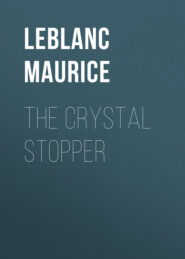По всем вопросам обращайтесь на: info@litportal.ru
(©) 2003-2025.
✖
813
Настройки чтения
Размер шрифта
Высота строк
Поля
"I have none."
The chief detective rose and, leaning on his stick, took a few steps through the room. All the people around him were silent… And it was rather curious, in a group in which, after all, his position was only that of an auxiliary, a subordinate, to see this ailing, decrepit, elderly man dominate the others by the sheer force of an authority which they had to feel, even though they did not accept it. After a long pause he said:
"I should like to inspect the rooms which adjoin this suite."
The manager showed him the plan of the hotel. The only way out of the right-hand bedroom, which was Mr. Kesselbach's, was through the little entrance-hall of the suite. But the bedroom on the left, the room occupied by the secretary, communicated with another apartment.
"Let us inspect it," said M. Lenormand.
M. Formerie could not help shrugging his shoulders and growling:
"But the communicating door is bolted and the window locked."
"Let us inspect it," repeated M. Lenormand.
He was taken into the apartment, which was the first of the five rooms reserved for Mrs. Kesselbach. Then, at his request, he was taken to the rooms leading out of it. All the communicating doors were bolted on both sides.
"Are not any of these rooms occupied?" he asked.
"No."
"Where are the keys?"
"The keys are always kept in the office."
"Then no one can have got in?."
"No one, except the floor-waiter who airs and dusts the rooms."
"Send for him, please."
The man, whose name was Gustave Beudot, replied that he had closed the windows of five rooms on the previous day in accordance with his general instructions.
"At what time?"
"At six o'clock in the evening."
"And you noticed nothing?"
"No, sir."
"And, this morning.. ?"
"This morning, I opened the windows at eight o'clock exactly."
"And you found nothing?"
He hesitated. He was pressed with questions and ended by admitting:
"Well, I picked up a cigarette-case near the fireplace in 420… I intended to take it to the office this evening."
"Have you it on you?"
"No, it is in my room. It is a gun-metal case. It has a space for tobacco and cigarette-papers on one side and for matches on the other. There are two initials in gold: an L and an M.."
"What's that?"
Chapman had stepped forward. He seemed greatly surprised and, questioning the servant:
"A gun-metal cigarette-case, you say?"
"Yes."
"With three compartments – for tobacco, cigarette-papers, and matches… Russian tobacco, wasn't it, very fine and light?"
"Yes."
"Go and fetch it… I should like to see it for myself.. to make sure.."
At a sign from the chief detective, Gustave Beudot left the room.
M. Lenormand sat down and his keen eyes examined the carpet, the furniture and the curtains. He asked:
"This is room 420, is it not?"
"Yes."
The magistrate grinned:
"I should very much like to know what connection you establish between this incident and the tragedy. Five locked doors separate us from the room in which Mr. Kesselbach was murdered."
M. Lenormand did not condescend to reply.
Time passed. Gustave did not return.
"Where does he sleep?" asked the chief detective.
"On the sixth floor," answered the manager. "The room is on the Rue de Judée side: above this, therefore. It's curious that he's not back yet."
"Would you have the kindness to send some one to see?"
The manager went himself, accompanied by Chapman. A few minutes after, he returned alone, running, with every mark of consternation on his face.
"Well?"
"Dead!"
"Murdered?"











